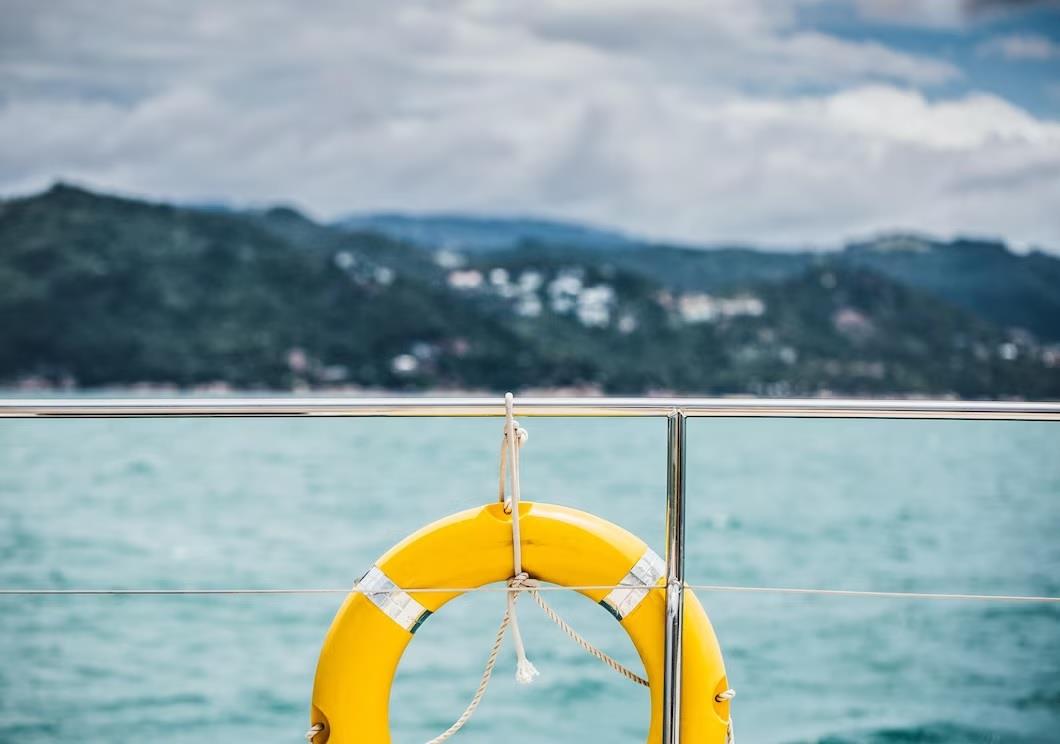(MENAFN- The Peninsula) The Washington Post
A 35-year-old Australian man who fell overboard on his way back to Brisbane. A Louisiana teen who jumped ship on a dare. A 7-year-old boy who died after falling into the ocean, followed by his mother, who tried to save him.
Overboard incidents on cruise ships are incredibly rare. But when they happen, they usually end in death, experts say.
The Coast Guard said last week it had given up on its search for 30-year-old Jaylen Hill, who went overboard during a four-day Carnival Cruise trip from Florida to the Bahamas. It searched more than 1,300 square miles for him.
"We offer our deepest condolences to the Hill family," the Coast Guard said on Twitter.
Hill was reported missing by a travel companion hours after he was last seen. Experts say such time gaps between a fall and the start of a search are a big part of why overboard incidents are so deadly.
Even if crew members are immediately aware of the incident, it takes the average ship at least a mile to turn around. The ship usually dispatches life boats and alerts authorities, such as the Coast Guard, which may not be close enough to assist, said Ross Klein, a cruise industry researcher and retired professor at Memorial University of Newfoundland. In many cases, ships are not aware that someone has gone overboard until a travel partner reports them missing, which could be hours or days later.
By then, it's often too late.
"It's a huge ocean. Just being found at all would be incredible," Klein said. "The longer you are out there, whether you're alive or not, the lower the possibility of being recovered. The vast majority of people are gone forever."
Even in cases where a fall is noticed immediately, a lot can go wrong.
"The fall itself can kill you, a cruise ship engine can suck you underneath the water, fear and anxiety or intoxication could prevent you from swimming - there's many different scenarios," said Brett Rivkind, a Miami lawyer who specializes in maritime law and represents families in overboard cases. A person can also become unconscious from hypothermia in as little as 15 minutes, depending on sea temperatures.
At least 386 people were reported to have gone overboard, voluntarily or by accident, from 2000 to 2020, according to data Klein compiled. He began tracking overboard cases in 1995 using media reports, tips, information requests and other methods, later serving as an expert witness before Congress.
"People overboard was an area that hadn't been studied, and, really, there was no data," he said. "Even within the industry, they said back in 2012 and 2013 before Congress that they don't keep track of this."
While it's true that tens of millions of people vacation on cruise ships every year without incident, experts say a combination of mitigatable risks and loose safety regulations are contributing to deaths.
In a 2020 study, a professor examined more than 620 cruise deaths from 2000 through the end of 2019. He found that overboard incidents - falling, jumping or being thrown - were the leading cause of death among passengers and crew members, accounting for 23 percent of all deaths.
"It's a lot more common than people think," said the professor, Travis Heggie, who tracks tourist deaths around the world at Bowling Green State University in Ohio.
Death rates for overboard incidents vary significantly among cruise lines, according to Klein's calculations, which he said proves more can be done to protect passengers.
Only a handful of cruise lines have installed man-overboard systems, which use sensors or other technology to immediately detect when a person has fallen or jumped off the vessel, Klein said. (The Cruise Vessel Security and Safety Act of 2010 requires vessels to "integrate technology" for detecting falls overboard "to the extent that such technology is available," and some operators have argued that existing technology is not reliable enough yet.)
The safest cruise lines were able to rescue only 40 percent of overboard passengers, and most save far fewer, he said. The rescue rate was as low as 6 percent on at least one cruise line.




















Comments
No comment